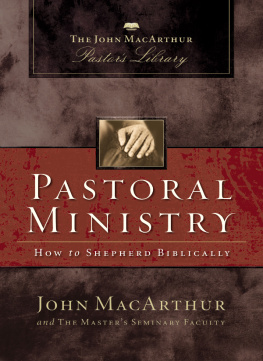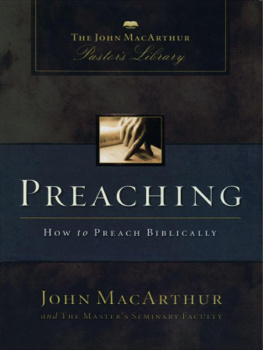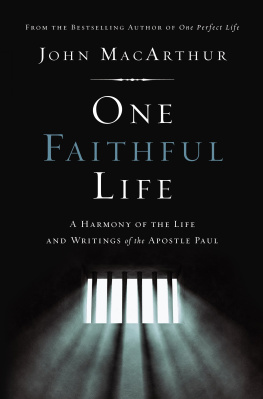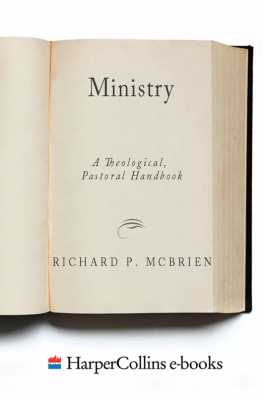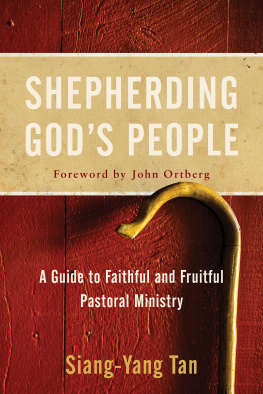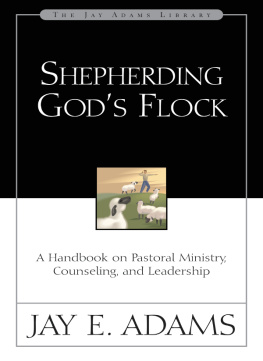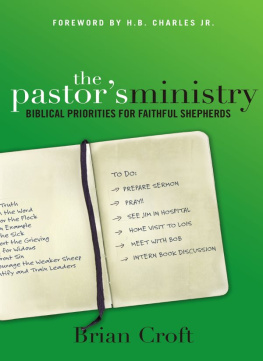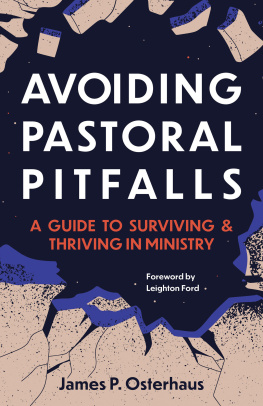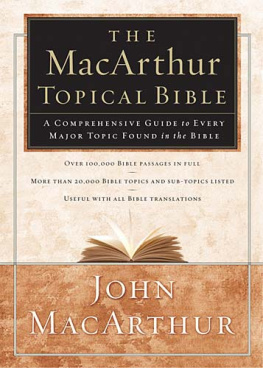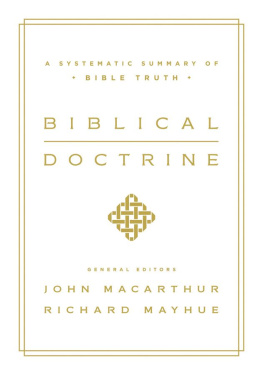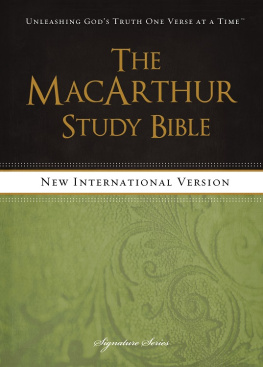In keeping with the purposes of The Masters Seminary, the goal of this volume is to encourage and instruct this and the next generation of pastors, missionaries, and teachers to provide the kind of shepherd leadership for the church that Gods Word requires. In a highly condensed form, this volume provides much of the pastoral theology curriculum of The Masters Seminary, the goal of which is to prepare men for pastoring the church, giving pastoral leadership on the mission field, and assuming pastoral functions in institutional teaching responsibilities. This work joins Preaching: How to Preach Biblically to provide a three-volume pastoral resource library.
Pastoral Ministry targets both seasoned pastors and young men preparing for or just beginning ministry. It calls pastors back to the Scriptures as the authoritative basis for developing a philosophy of ministry. Since many of our generations pastors have fallen prey to the consumer approach or market-driven philosophy of ministry, this volume purposes to recover, reaffirm, and restore a biblical approach to pastoral ministry. In this regard Pastoral Ministry is both prescriptive of guidelines to follow and proscriptive of dangers to avoid.
This is not an unabridged treatment of pastoral ministry. We have left many particulars such as church growth, church discipline, church membership, church polity, and the details of specialized ministries (such as, youth ministry, adult ministry) to be dealt with in other forums. Further, no single chapter exhausts its subject but rather furnishes a suggestive general treatment. The broad sweep of this work is its intended strength, as it deals with the biblical nature of what a pastor is to be personally and how he is to minister in the church.
More specifically, the threefold aim of Pastoral Ministry is:
- To validate the biblical absolutes required by God for pastoral ministry, that is, to answer the question, What is ones authority for establishing a philosophy of ministry?
- To elucidate the biblical qualifications for church pastors, that is, to answer the question, Whom has God authorized to be undershepherds of Christs flock?
- To delineate the biblical priorities for pastoral ministry, that is, to answer the question, What does a scripturally based pastoral ministry involve?
President John MacArthur, who has pastored Grace Community Church for over thirty-five years and has had a worldwide impact to the glory of God, has contributed a significant portion of this book. His colleagues on The Masters Seminary faculty, with an average of more than twenty-eight years experience each in pastoring and in the seminary training of pastors, have also contributed from the treasury of their particular expertise. The reader will quickly appreciate their varied but united affirmations on pastoral ministry that emerge amidst an abundance of individual expressions.
The reader will also note a diversity in the levels of style in treating the different topics. At one extreme are the chapters whose documentation is extensive, and at the other are those in which documentation is minimal. To some extent, this diversity is a consequence of the nature of individual subjects, and to a lesser degree, the choice of each contributor. Each has handled his phase of pastoring in the manner he deemed wisest.
The book outlines four broad categories that move from the biblical to the practical. They include: (1) the biblical character and essence of pastoral ministry, (2) the biblically required preparation of a man who would pastor, (3) the personal qualifications of a man biblically qualified to pastor, and (4) the biblical priority of activities involved in pastoral ministry. The underlying reason for this undertaking is the strong desire to answer the question, How does todays pastor build a contemporary ministry in line with biblical mandates? The hoped-for result of applying the ideas in Pastoral Ministry will be a pastoral ministry that majors in spiritual relevance to the body of Christ.
Because of the extreme importance of prayer in pastoral ministry, the section on personal qualifications has two chapters to emphasize that phase of the pastors life. One deals primarily, though not exclusively, with the pastors own prayer life, the other predominantly with prayer in the life of the church. Of course, it is impossible to make a complete distinction between these two types of prayer, but the dual treatment serves to give added attention to a very important subject.
In the Additional Reading section at the end of the volume, we avoided listing hundreds of books on pastoring that are no longer in print or do not make a significant contribution; instead, we have selected a sampling of the best available and affordable volumes on pastoral ministry. The inclusion of a work in this list does not constitute an endorsement of everything in that work but reflects the facultys favorable impressions of its general thrust. Conversely, the exclusion of a title does not necessarily reflect negatively on that work. We encourage the reader to make the listed works his first acquisitions in supplementing the material in Pastoral Ministry.
The footnotes document extensive literature related to pastoral ministry. For the reader who chooses to utilize it, this information can be a gold mine for further study. Those who prefer may, of course, read just the body of the text. The Index of Authors will be useful in locating all the references to a particular writer. The addition of an Index of Scriptures and an Index of Subjects provides for ready reference to two more categories.

